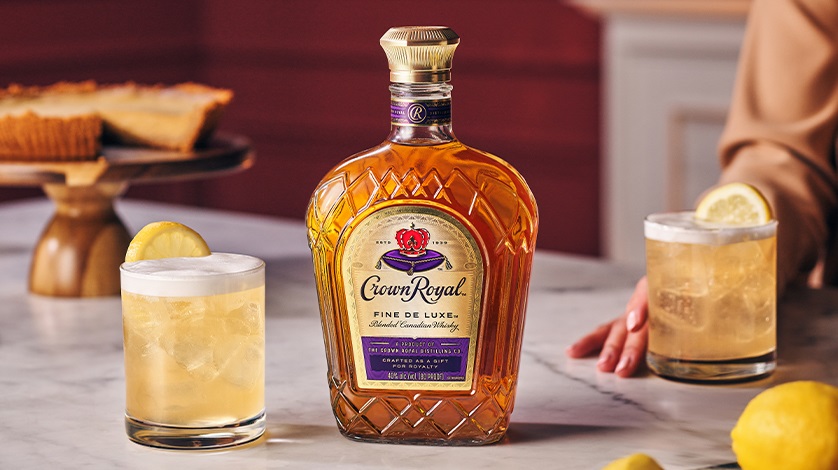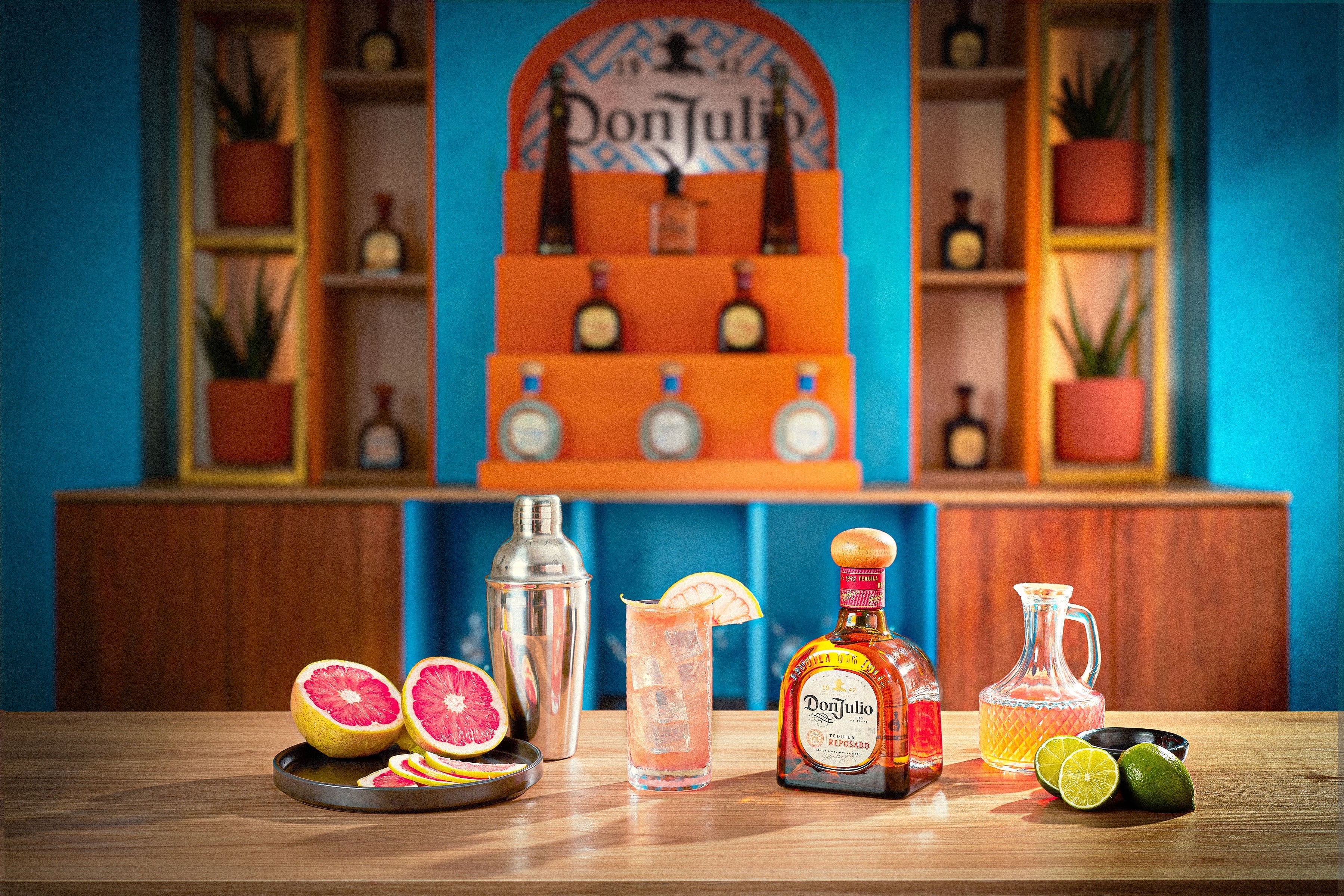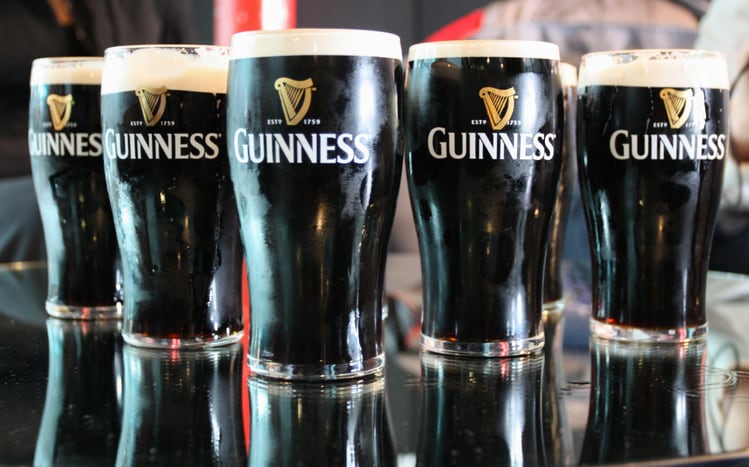Tariffs on products from Mexico and Canada could dent the company’s operating profit by around $200m in the next half if implemented in March, according to the company’s calculations: although the firm says it has anticipated and planned around various scenarios to offset that impact.
The company has withdrawn its medium-term sales forecast, saying the uncertainty around the tariffs makes it impossible to predict the outlook for the coming months.
The London-headquartered spirits and beer giant saw organic net sales grow 1% from June – December 2024, as the company recovers from a rocky few years (notably issuing a profit alert in 2023 largely due to problems with its Latin America and Caribbean division).
Diageo says it has made investments for long-term growth, but highlights that tariffs from the US could affect its recovery in 2025.
Complicated planning: Tariffs
North America is Diageo’s largest division – representing more than a third of net sales. The US pulls in around $7.9bn sales a year. And the portfolio leans into premium and high-growth categories such as whiskey and tequila.
Taking office in the US, one of President Trump’s first tasks has been to impose or threaten tariffs. A 10% tariff on Chinese imports has come into effect; while 25% tariffs on Canadian and Mexican goods have been postponed after last-minute talks.
In the US, around 45% of Diageo’s net sales come from products that must – by definition - be made in Canada or Mexico, given geographic origin requirements.
Tequila – a strong category for Diageo in the US with Don Julio, Casamigos, Astral and DeLeon – must be made in Mexico. Meanwhile, Crown Royal is the top-selling Canadian whisky in the US.

Looking further down the line, the EU and UK could next be in the firing line for Trump’s tariffs: which would affect Diageo’s strong Scotch portfolio which includes brands such as Johnnie Walker, Haig Club and Talisker.
And if any of the markets introduce reactive tariffs, that could see further retaliatory tariffs – leading to an unpredictable situation that could escalate.
“Unfortunately, this adds complexity to providing forward looking guidance,” said Nik Jhangiani, CFO. “It is clear that the situation is still extremely fluid, particularly around the implementation and timing of any retaliatory tariffs and the impact, and of course, any potential response to that retaliation.
“Importantly, Diageo starts from a position of strength with a broad global portfolio across categories and geographies and we have demonstrated agility in navigating tariffs in the past. While tariffs can be quite disruptive in the short term, we generally can mitigate long term impact with our broad, resilient portfolio.
“The introduction of tariffs was an anticipated scenario, albeit the ‘effective immediate’ timeline does create additional uncertainty. We have done considerable contingency planning over the last few months focused on what we can control, and on the potential depth and timing of tariffs.
“Given our extensive supply chain and broad and advantaged portfolio, there are a number of possible actions to help mitigate the potential impact including: pricing and promotion management, inventory management, supply chain optimisation and re-allocation of investments.”
CEO Debra Crew adds that the company is working with other stakeholders to minimize the impact of tariffs.
“We are taking a number of actions to mitigate the impact and disruption to our business that tariffs may cause, and we will also continue to engage with the US administration on the broader impact that this will have on everyone supporting the US hospitality industry, including consumers, employees, distributors, restaurants, bars and other retail outlets,” she said.
Diageo H1 2025
Organic net sales returned to growth and increased 1%. Reported net sales of $10.9bn declined 0.6% due to unfavourable foreign exchange.
Volumes declined 0.2%. Organic operating profit declined by 1.2%.
Diageo grew or held total market share in 65% of total net sales value in measured markets, including in the US.
CEO Debra Crew – who took on the reins of the company in July 2023 – said the company’s performance in the first half of FY2025 shows the company is making ‘meaningful progress’ in its quest to return to growth.
In particular, the problematic Latin America and Caribbean region is back in growth after a tricky period. Having seen an ‘extraordinary period of growth’ over the pandemic years – increasing net sales value by 50% from 2019 to 2022 with a focus on premium spirits – macro-economic slowdowns then saw consumers downtrade to categories such as beer, leaving Diageo with large quantities of excess stock.
Now, destocking is complete and the consumer environment is ‘moderately improving’, according to Crew.
While Trump’s tariffs are the most pressing problem for Diageo in North America, the company reports that the consumer environment remains under pressure before these are even taken into account.
In H1 2025, North America saw a return to topline growth for Diageo, with sales edging up 0.2% over the half.
The company gained share of Total Beverage Alcohol led by Don Julio and Crown Royal.
“Despite a gradual improvement in consumer sentiment, the US broader consumer environment continues to be under pressure with grocery baskets still at 30-year highs,” said Crew.
“In this environment, Total Beverage Alcohol has been slightly declining with the US Spirits market modestly better but remaining flat. Premiumization in Bottled Spirits continues with super-premium plus priced products driving growth while premium and below core priced products are declining by low-single digit.”
One answer for Diageo has been to focus on smaller pack sizes.
“With ongoing economic pressures, we have seen that consumers have opted for smaller pack sizes; in fact, four out of ten of our largest share gainers have been in these smaller formats. Importantly these formats have ensured that consumers stayed with our premium brands,” said Crew.



